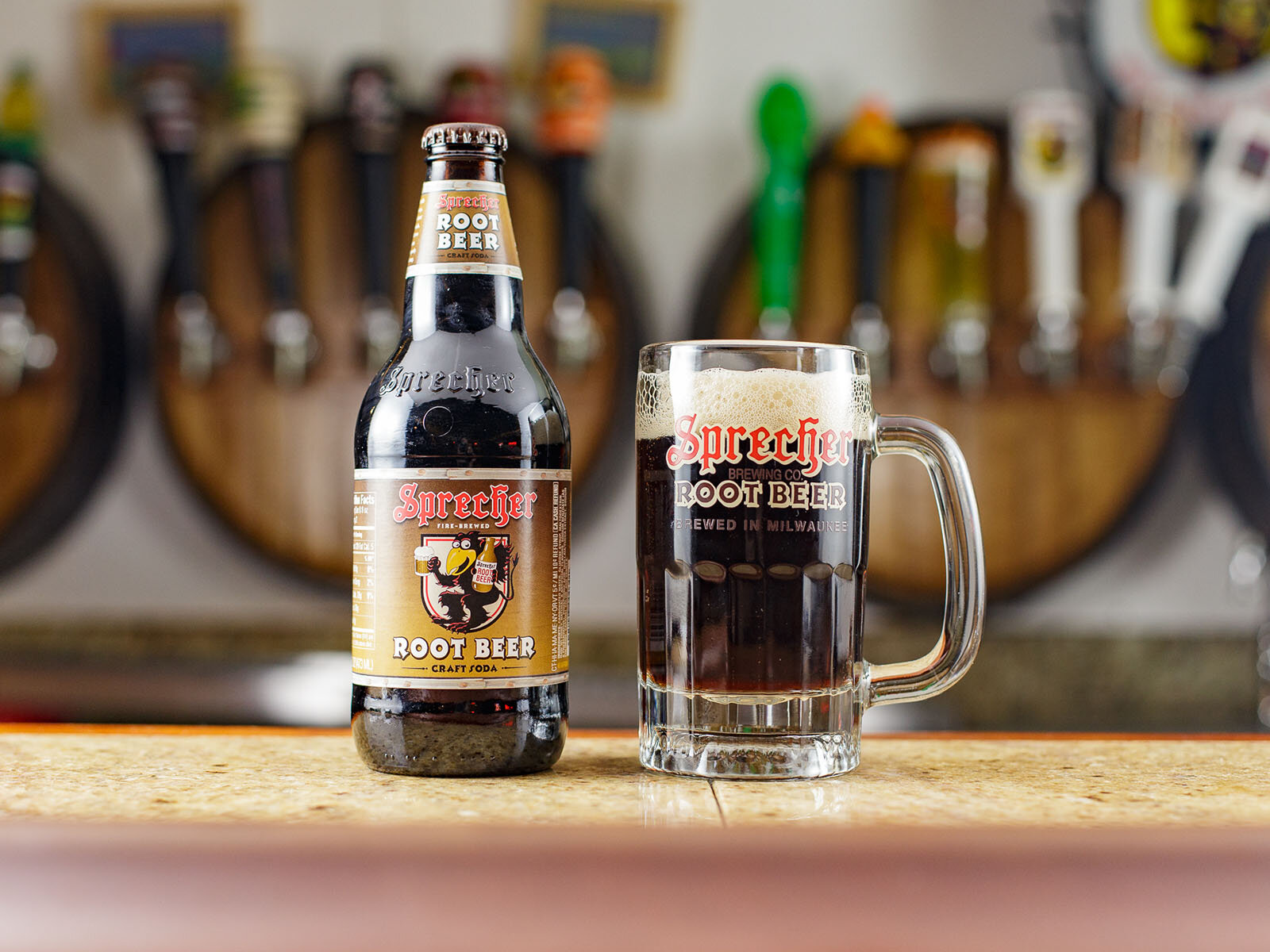The book "The History of Science and Technology," by Bryan Bunch and Alexander Hellemans, traces the history of the classic Bavarian pretzel back to 610 A.D. when "…an Italian monk invents pretzels as a reward to children who learn their prayers. He calls the strips of baked dough folded to resemble arms crossing the chest ‘pretiola’ (little rewards)."
The large, soft, salted unglazed pretzels are now served almost everywhere in Southern Germany. Whether eaten for breakfast with sausage, nibbled between meals, or served as part of a bread basket, the Bavarian pretzel is a time honored tradition that has become a daily part of German culture.
These pretzels were the inspiration for Milwaukee Pretzel Company, a new artisan food business started by Milwaukeeans Katie and Matt Wessel.
"A food-based business has always been in the back of my head," Katie Wessel tells me as we sip coffee at Milwaukee’s Stone Creek Coffee Factory, "I always had the dream of starting a little café or a restaurant. But, never something like this."
Wessel says she contemplated attending culinary school, but gave up the notion when she started a degree program at Marquette University, where she majored in German and political science. After earning her MBA, Wessel took a job at Spaulding Clinical, selling clinical research services for drug safety testing.
A few years ago, Wessel’s company offered her the opportunity to work in Germany for a year, and she and her husband jumped at the chance.
"It wasn’t until we were immersed in the German culture that we realized that the pretzel is so integral … as much as beer, sausages, lederhosen," says Matt. "It’s like a bagel in New York or the baguette in France, it’s their thing."
And Katie agrees. "We’d go and sit at a beer garden and … it’s a sunny day and you’re drinking beer and holding a pretzel, it’s a true cultural experience."
She notes that their transition to living in Munich was made easier by the fact that it is really not so different from Milwaukee. There is a blue collar, old world feel, she tells me. The people love their beer, sausage, festivals. "It felt a lot like home."
But, upon returning home to Milwaukee, they realized that their beer garden experience was missing something.
"We missed the pretzels," Katie recalls. "The products here are nothing like what we experienced in Munich. But, we felt like people here were really in a great position to appreciate the product and where it came from."
So, they set out to create and market pretzels like the ones they’d enjoyed in Germany.
Katie had already started the first stages of research while the couple lived in Munich.
"The first thing that I did was to research what made a Bavarian pretzel Bavarian," she says. "And what the differences were between the American soft pretzel and the Bavarian style."
She started by creating a traditional American pretzel and comparing it with the ones she found in Germany. What she found is that the ingredients tended to be similar – usually comprised of flour, water, salt, yeast, butter. But, recipes and techniques varied.
"I talked with German bakers," she says. "I found the common theme among them and worked with that. I worked at home recipe after recipe … tweaking and adding things, doing things differently."
One of the major differences between the American soft pretzel and the Bavarian version is the shape of the dough. American pretzels tend to be uniformly raised. But, Bavarian pretzels are fattest at the bottom, with a thinner part around the sides, and then a very thin crispy area in the middle.
According to Katie, the Bavarian pretzel gives the eater the best of all worlds. "It’s like three different pretzels in one," she notes.
Differences also lie in the technique used to give a pretzel its caramelized color. American soft pretzels benefit from being dipped in a baking soda and water solution, while German pretzels are dipped in lye (sodium hydroxide), giving them a darker, crispier exterior.
"Once we started dipping the pretzels in lye, that’s when we noticed the massive difference," she notes. "We played with different concentrations of water to lye… and got to the perfect percentage."
And then, there was the challenge of converting to commercial baking.
Katie worked with The American Commercial Baking Institute to scale the recipe for commercial purposes, and then she made pretzels over and over again until she got the recipe exactly where she wanted it to be.
The process wasn’t without its challenges. And Katie bumped up against various obstacles, from the chlorine content in Milwaukee water to the lower protein content typical of European flours.
Ultimately, Wessel’s process takes about 14 hours from start to finish. A large percentage of that time is dedicated to the fermentation process – the "secret" touch that gives Milwaukee Pretzel Company pretzels a unique depth of flavor in comparison to their traditional American counterparts.
"This is very much an artisan product," Katie explains. "The process is very similar to that used for artisan bread, and that’s where I derived the inspiration for my technique."
While Katie is the baker, Matt is the marketing brain behind the operation.
"We’re not driven so much by profit," Matt tells me. "We want to bring that experience we had back home. Our success won’t be measured by how much money we make; it will be based on how much awareness we bring to Milwaukee about the place of the pretzel in the culture. When you have a beer, we want you to think ‘I want a pretzel with that.’"
The couple started out by launching their product this summer at German Fest, where they sold 2,000 pretzels over a four-day period.
And their success didn’t go unnoticed. German Fest, which traditionally imports its pretzels from Munich, says they’d like to carry Milwaukee Pretzel Company pretzels exclusively during next year’s festival.
A number of other venues have also taken note. Milwaukee Pretzel Company pretzels are now being served at Kasana, The Pfister Hotel and Black Sheep. Milwaukee Food Tours is using the pretzels for at least one of their Milwaukee tours. And the pretzels are likely to be served at both the Hoyt Park and Estabrook Beer Gardens starting next summer.
According to the Wessels, restaurants like Mader’s have also helped out with taste testing of the Milwaukee Pretzel product and have expressed an interest in carrying them.
Currently, Milwaukee Pretzel Company bakes their product at the commercial kitchen at Kasana in Milwaukee’s Third Ward. But, they are anticipating the need for a move once business takes off.
"We’ll eventually need our own production facility," Matt says. "We could easily spend a million dollars and build a space, but we’re really wanting to take things one step at a time."
That means slow, careful growth. In the meantime, the Wessels envision their product appearing in all the classic Milwaukee spots – at breweries like MillerCoors, Lakefront, and Milwaukee Brewing Company… along with restaurants like the Milwaukee Alehouse and Horny Goat Hideaway.
"I love that we’re a specialty item right now," Matt says. "My vision is to make the Bavarian pretzel a staple in Milwaukee. And I want that to be the Milwaukee Pretzel Company pretzel. When people think about Milwaukee, I want pretzels to be part of the picture."
For more information on Milwaukee Pretzel Company, visit their web site at milwaukeepretzel.com. Or follow along on Facebook and Twitter.
You can also catch a sample of Milwaukee Pretzel Company pretzels this Saturday, Nov. 16 during my Beer Garden cooking demonstration at Wine & Dine Wisconsin, which will be held at 2 p.m. on the cooking stage. For information and tickets, visit wineanddinewisconsin.com.
As a passionate champion of the local dining scene, Lori has reimagined the restaurant critic's role into that of a trusted dining concierge, guiding food lovers to delightful culinary discoveries and memorable experiences.
Lori is an avid cook whose accrual of condiments and spices is rivaled only by her cookbook collection. Her passion for the culinary industry was birthed while balancing A&W root beer mugs as a teenage carhop, fed by insatiable curiosity and fueled by the people whose stories entwine with every dish. Lori is the author of two books: the "Wisconsin Field to Fork" cookbook and "Milwaukee Food". Her work has garnered journalism awards from entities including the Milwaukee Press Club. In 2024, Lori was honored with a "Top 20 Women in Hospitality to Watch" award by the Wisconsin Restaurant Association.
When she’s not eating, photographing food, writing or planning for TV and radio spots, you’ll find Lori seeking out adventures with her husband Paul, traveling, cooking, reading, learning, snuggling with her cats and looking for ways to make a difference.







